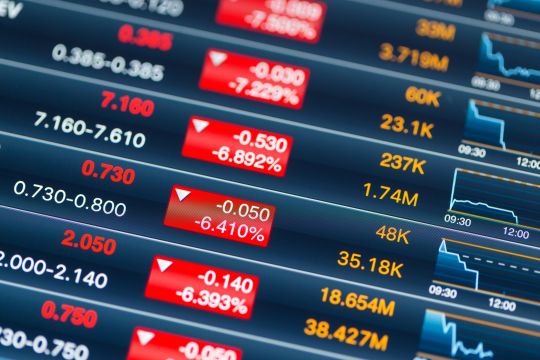Investing during a recession

When we’re in an economic decline, is it a good time to invest? Is there a safe way to invest during a recession? We explore the ins and outs of investing during uncertain times.
What is a recession?
A recession officially occurs when there is a sustained decline in gross domestic product (GDP) for two or more consecutive quarters. In other words, the value of all the goods and services produced in a country fell for a period of six months or more.
Recessions are not only characterised by poor economic growth but are usually accompanied by other factors like high unemployment, fewer jobs available, a drop in manufacturing production and sales, and a downturn on the stock market.
It’s important to note that recessions are a normal part of our modern economic cycle. Australia was one of the few countries that managed to avoid a recession during the Global Financial Crisis (GFC), mainly due to demand from China. However, Covid-19 was almost impossible to avoid and brought about Australia’s first recession in 30 years.
Related article: Understanding market cycles and how if affects asset prices
Is it safe to invest during a recession?
Investing naturally carries risk, particularly stocks, although even more so during a recession when stock values usually decline. It can be an unsettling period and some investors may be inclined to hold on to every dollar they make instead of investing. This strategy may suit investors with a lower tolerance for risk.
However, if you have an existing portfolio by exiting the market you would be locking in recession-related losses. So, depending on when and what you bought, it might be beneficial to hold your position. If you’ve done your due diligence and made a sound investment you may find that you can weather the storm and asset prices could potentially bounce back. This is sometimes referred to as ‘buying the dip’, and it can be a risky strategy if things don’t pan out as you hoped.
Recession-resistant industries
If you are considering entering the market there are a few sectors that may fare better than others during a recession, such as healthcare, energy and consumer staples. As these sectors are essential even in times of instability, therefore they tend to be less affected by market downturns.
Cyclical stocks
Industries that are typically most vulnerable during a recession include: travel, financial services, luxury goods, retail, real estate and basic materials. These industries are considered cyclical, as they are generally highly sensitive to the economic cycle. Generally, these sectors are closely related to consumer discretionary spending. If the economy is booming, and people are feeling more confident with their financial position, they will likely spend more money on goods and services provided by these businesses. But, when the economy tanks, it has the opposite effect.
How to help prepare your portfolio for a recession?
Diversification
To prepare for a market downturn, one thing investors can do is diversify their portfolio. An example of a diversified portfolio is one that has a mix of investments assets, from fixed interest to equities, and investments that span across different countries. For example a mix of local and international stocks. Diversification can help lower risk as different assets perform well at different times. For instance, typically when stocks are down, bonds are up. This can help even out your returns. However, it is not a fool-proof method, it may help to lower risk, but as with most things in life, there are no guarantees.
Have a rainy-day fund
It is generally a good idea to always have a sizable amount of money in cash ready for a rainy day.. Some experts suggest that having three to six months worth of expenses in your rainy day fund is best. Having this money to hand if you need it will mean that you may not have to withdraw from your investments, and potentially make a loss. But also during periods of instability, you will likely be less stressed.
Watch those fees
There are a number of fees that you may encounter when you invest, like brokerage costs, management charges and even middle man charges. All these fees will eat into your returns and when the stock market is in decline you may feel it even more. So, when deciding which platform or broker to invest with, consider the fees carefully, do they represent value for money?
Related articles: Brokerage fees: What should you expect?
Invest wisely
Another way you can protect your investment portfolio is by making wise investment choices. That may seem like an unhelpful statement, but bear with me. Before investing in a company or any asset you should conduct some thorough research, understand clearly how the company makes money and their plans for the future. Any investment you make should also align with your investment strategy, goals and tolerance for risk. If you stick to this plan then you may find that even when your investments take a dive during a recession, they may rebound when the economy does.
Main image source: VectorMine/Shutterstock.com.
Try our Investor Hub comparison tool to instantly compare Canstar expert rated options.





